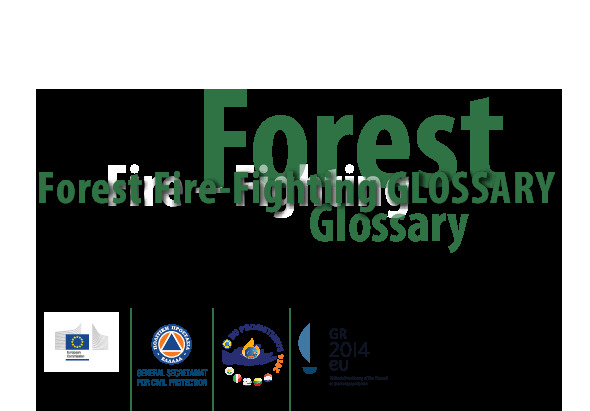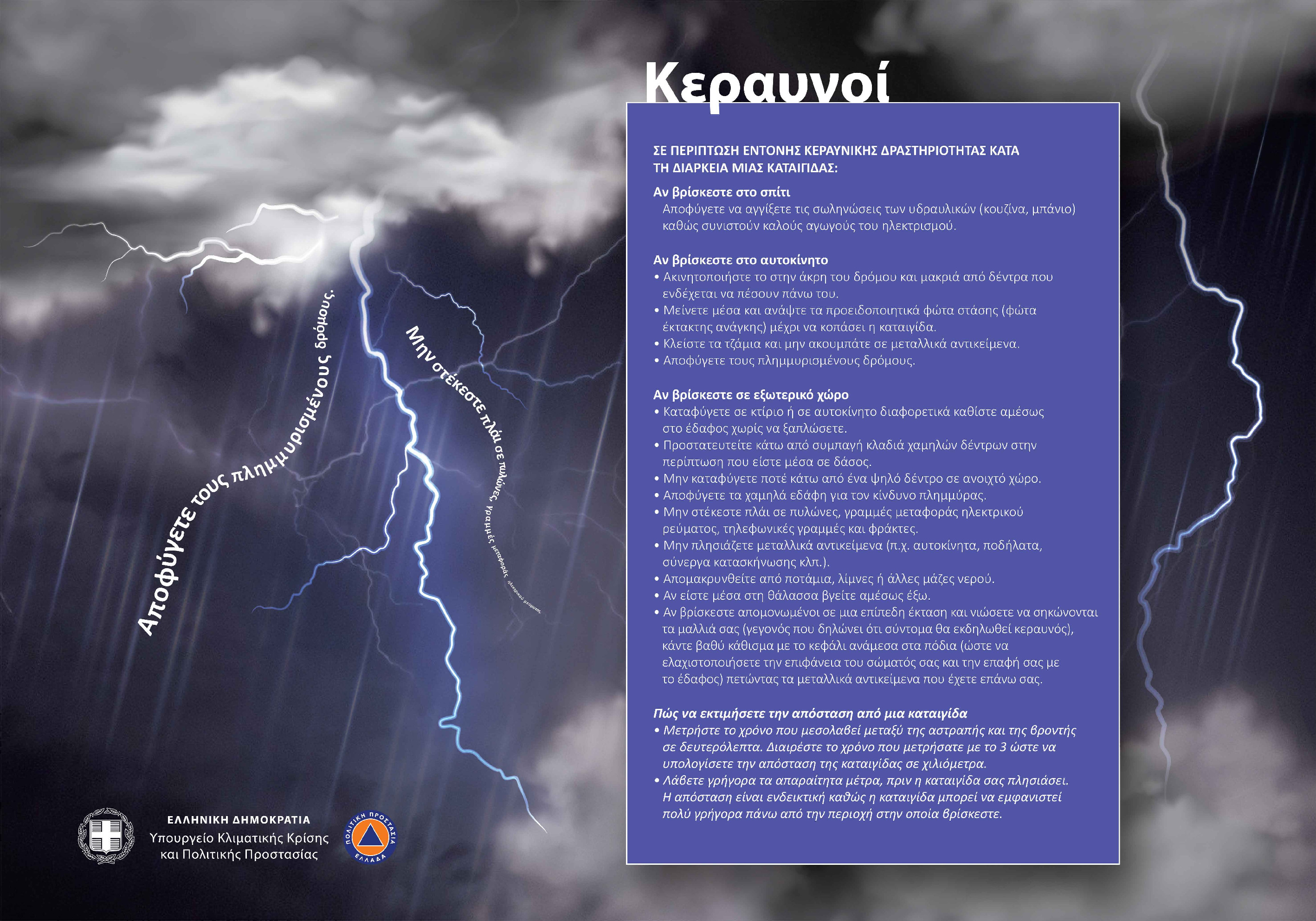General Instructions
GENERAL INSTRUCTIONS
- Be constantly informed by radio and television on the progress of the phenomena. The General Secretariat for Civil Protection and the National Meteorological Service are the formal sources of information.
- In case of emergency call alternatively: the Police (100), the Fire Service (199) the National Center for Emergency Care/ EKAB (166) or the European Emergency Call Number (112).
- Place the above mentioned phone numbers in a visible position inside the house and make sure that your children are informed of them, if they are able to use them.
- Help your children learn important family data such as their last name, the address and the phone number of your home.
- Explain to all family members when and how to switch off electric power, natural gas and water supply, how to use the fire-extinguisher and how to call for help.
- Be equipped with emergency equipment, such as a first aid kit, fire extinguisher, torch and batteries, a portable radio etc.
- Take special care of children and the elderly.
AFTER THE BAD WEATHER
- Be constantly informed by radio and television for formal warnings or advice.
- Check the house and the rest of your property to draw up a list of eventual damages.
If you are going to travel
- Be informed of the weather and the condition of the roads.
- Be prepared, according to your destination, for any weather phenomena you may encounter (snow, ice, hail, rainfall, etc.)
- Plan your movement in a way not to coincide with the peak of the weather phenomena.
- Travel during the day and prefer highways avoiding deserted and difficult to access roads.
- Inform all your relatives of the itinerary you intend to follow.
- Don’t ignore the instructions of the General Secretariat for Civil Protection, the weather forecasts and the instructions of the Authorities, such as the Traffic Police, the Port Authority, the Fire Service, etc.
- Check the condition of your car before attempting any movement.
- Equip your car with all necessary equipment in order to face any heavy weather phenomena (tire chains, anti-freeze, umbrellas, raincoats, rubber boots, a torch, first aid kit etc).
- If you have to move on foot, put on suitable clothes and shoes.
- Be careful when walking in order to avoid being injured due to the slipperiness of the roads and pavements or due to objects falling by the wind or hail.
- Prefer public transport.
- Remain calm and be patient. Panic makes the situation worse.
- Facilitate the work of the Authorities.
Περισσότερες Οδηγίες Προστασίας
MULTIMEDIA
Προσβάσιμα Video
"The Rights of Persons with Disabilities in Emergency Situations"
Προσβάσιμα Video
"Δικαιώματα Ατόμων Με Αναπηρία σε Καταστάσεις Έκτακτης Ανάγκης "
Προσβάσιμα Video
"Basic preparedness steps to reduce the impact of natural or technological disasters (EN & ISL)"









